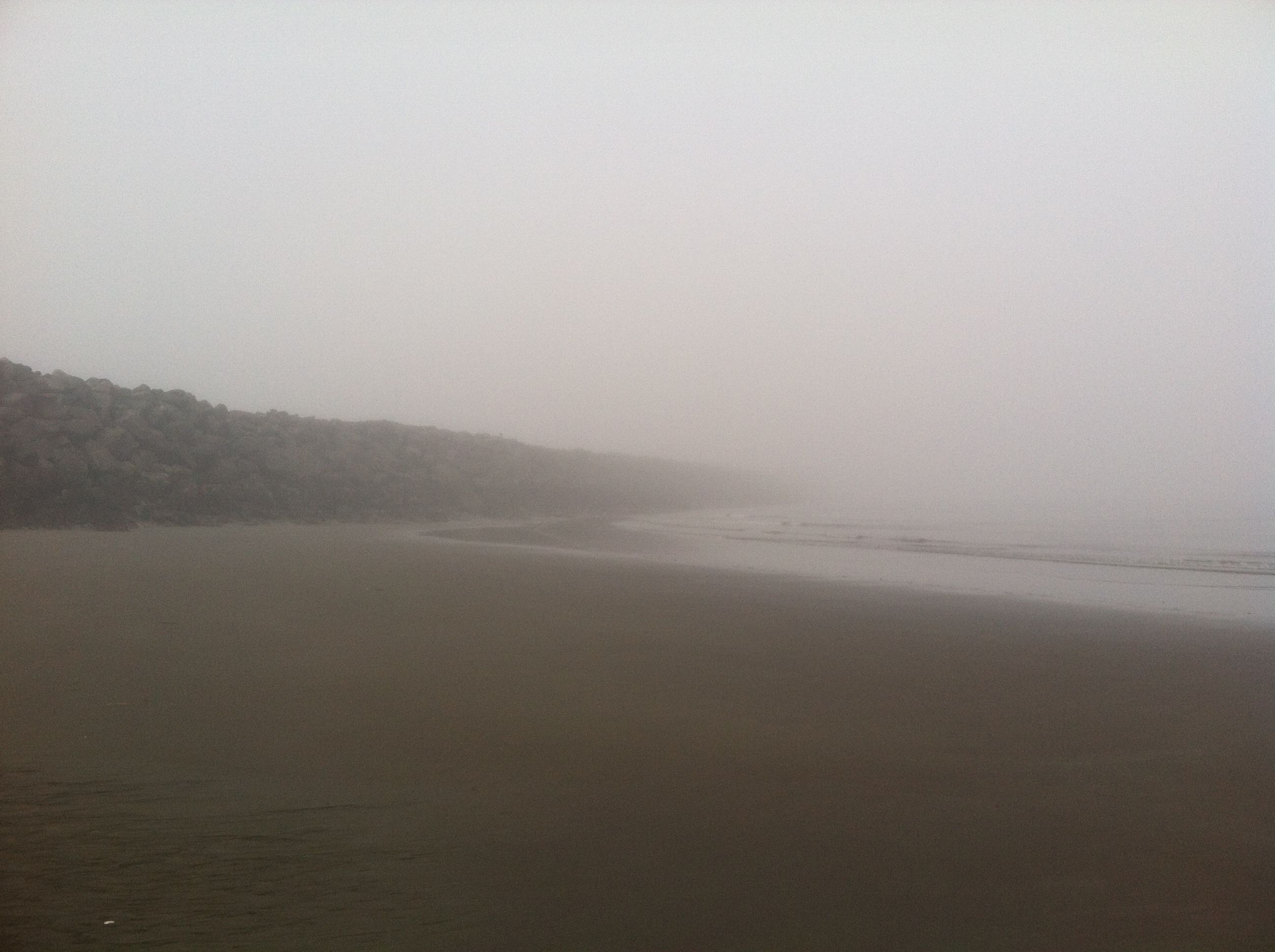Russians at the Jetty
Fog enveloped the South Jetty on Sunday morning at dawn. A clam chowder fog. Not a fake chowder one from Sysco, but a real one harvested by OTA men nipping Crown Royal from flasks and armed with duct-taped clam guns.
I walked north through the sand and dune grass to the Columbia River on one of the lowest tides of the year. I couldn’t see a damn thing but I knew I would find her.
No human was within a mile of me. A single gull matched my pace. I like gulls a lot. They don’t talk or text at the beach. I threw my feathered friend a strawberry for good luck and he veered off to feast.
Walking, walking, walking, north, north, north, walking parallel to the mighty 30-foot black jetty, a rock fortress of hubris meant to rearrange nature. It has worked. It won’t forever. Oh, to see the day when the real estuary returns! I’ll be dead by then and glad of it. But the real estuary will return one day, a reckoning of astonishing proportions, the sort of reckoning that becomes a legend told in solemn tones round the beach bonfire with frosty cans of Rainier and a driftwood peace pipe sending wisps of wisdom into the night.
I found the river’s edge. I damn near walked to Washington. I couldn’t see 20 yards in any direction.
Ideas came to me. I formulated formulas for rebirth and a kick-ass detective novel. I took notes!
I kept walking. I would parallel the South Jetty back into the park until I couldn’t parallel anymore.
A quarter mile later, a thin man appeared in the fog. He was standing atop the jetty, searching for a way down to the beach, on the ocean side. He smoked a cigarette with his right hand and clutched a white bucket with his left. I moved toward him and inspected his features: definitely Russian. How did I surmise his nationality? I’ve seen a lot of Russians with buckets and cigarettes on Oregon Coast beaches in 20 years, and here was another one and his presence utterly delighted me.
A woman emerged from a trail and joined the man. She was carrying a rake. She looked as if she had just walked out of Tolstoy or Chekhov, the whole Russian peasant woman thing: long dress, stocky build, hunched, head covering, the 19th century works.
The man turned to her, spoke some Russian, and pointed a path through the slick, jagged rocks. They came together and started making their way down to the beach. She held the rake upright over her left shoulder like one of the Czar’s soldiers marching with a musket to save Moscow from Napoleon.
The Russians were off to hunt mussels encrusted on the jetty’s rocks, exposed by the extreme low tide. She would rake and he would smoke. Later, there might be vodka.
(If you found this post enjoyable, thought provoking or enlightening, please consider supporting a writer at work by making a financial contribution to this blog or by purchasing an NSP book.)

